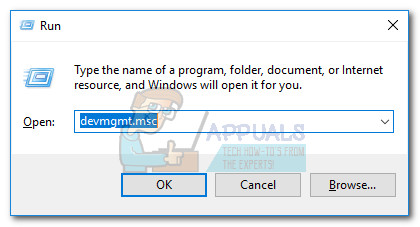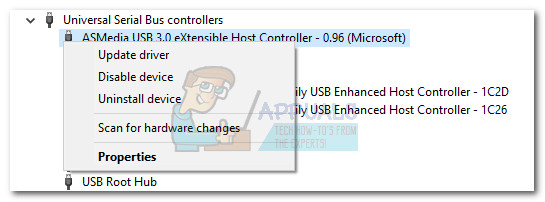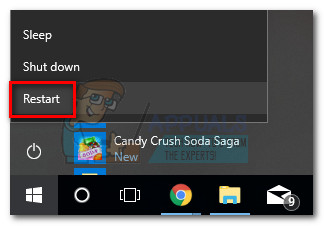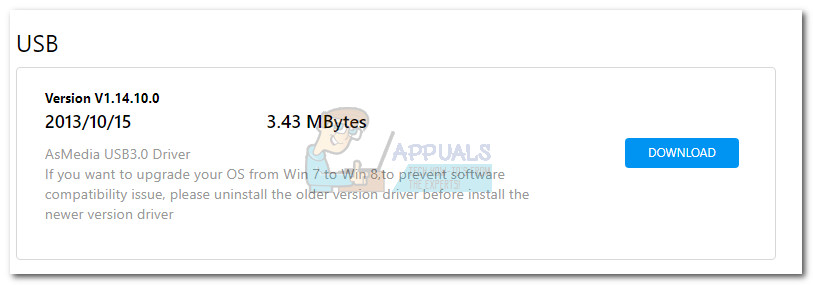Fix: IRQL_NOT_LESS_OR_EQUAL (ntoskrnl.exe) BSOD
Some users are struggling with a BSOD (blue screen of death) crashes with the IRQL_NOT_LESS_OR_EQUAL when running demanding applications or when putting/waking their PC to sleep. Upon investigating the issue, it seems like the issue originates from the ntoskrnl.exe driver.
What is ntoskrnl.exe?
This executable is popularly known as the kernel image. Essentially, this executable provides the kernel and executive layers of the Windows kernel space. It’s being responsible for a lot of vital systems features such as process and memory management and hardware virtualization. The ntoskrnl.exe process is a fundamental part of any Windows operating system.
Even though the error is signaling a problem with ntoskrnl.exe, it doesn’t mean that the process itself is corrupted. Typically, it’s just an indicator that some system services that operate through the kernel image are malfunctioning.
If you’re currently struggling with this issue, the following fixes might solve your issue. We manage to identify a couple of fixes that have managed to resolve the issue for users in a similar situation. Please follow the two methods in order until you encounter a fix that resolves your situation.
Method 1: Uninstall problematic applications
Most of the time, the irql_not_less_or_equal ntoskrnl.exe BSOD is caused by a 3rd party program – usually a utility. Some users have reported that the issue has been resolved after they managed to identify and remove the software that was triggering the blue screens.
If you’re dealing with a irql_not_less_or_equal ntoskrnl.exe BSOD, see whether you have Glary Utilities or EaseUS Todo Backup installed. If you do, uninstall them as soon as possible and reboot your computer. If you didn’t install any of the programs mentioned above, try to remove any 3rd party utility that you installed yourself. Once you do this, reboot your device and see if the BSOD crash returns.
After the two utilities have been removed, stress your PC or leave it on idle (try to recreate the scenario that typically produces the BSOD crash). If the experimentations aren’t triggering a new BSOD crash, you’ve managed to resolve the issue.
Method 2: Install the missing USB driver
This particular issue is quite common with users that have recently upgraded to Windows 10 from an older Windows version. The USB driver should automatically be migrated and updated to fit the new operating system, but as it turns out, this doesn’t always happen automatically. Whenever this bug occurs, the USB driver (usbccgp.sys) cannot be used to reference a memory address, so it causes the system to stop.
Note: This issue is mostly known to happen on older laptops and notebooks.
If the first method wasn’t helpful, follow the guide below to see whether your USB driver checks out:
- Press Windows key + R to open up a Run command. Then, type “devmgmt.msc” and hit Enter to open Device Manager.

- In the devices list, scroll down to Universal Serial Bus controllers and see whether you manage to spot any yellow exclamation marks associated with the USB driver.
 Note: If you notice a yellow exclamation point near your USB Host controller, this is usually a sign that the driver is having issues being migrated. In this case, uninstall it by right-clicking and choosing Uninstall device.
Note: If you notice a yellow exclamation point near your USB Host controller, this is usually a sign that the driver is having issues being migrated. In this case, uninstall it by right-clicking and choosing Uninstall device. - Once the faulty USB host controller is removed, restart your computer in Safe Mode by holding Shift while clicking the Restart button.

- Once your PC boots into safe mode, navigate to your PC/laptop manufacturer’s website. Once you’re there look for the USB driver associated with your model and operating system.

- Use the installer to copy the missing driver, then restart your PC again to get out of Safe Mode.
- At the next restart, you should be no longer bothered by irql_not_less_or_equal ntoskrnl.exe BSOD crashes.






